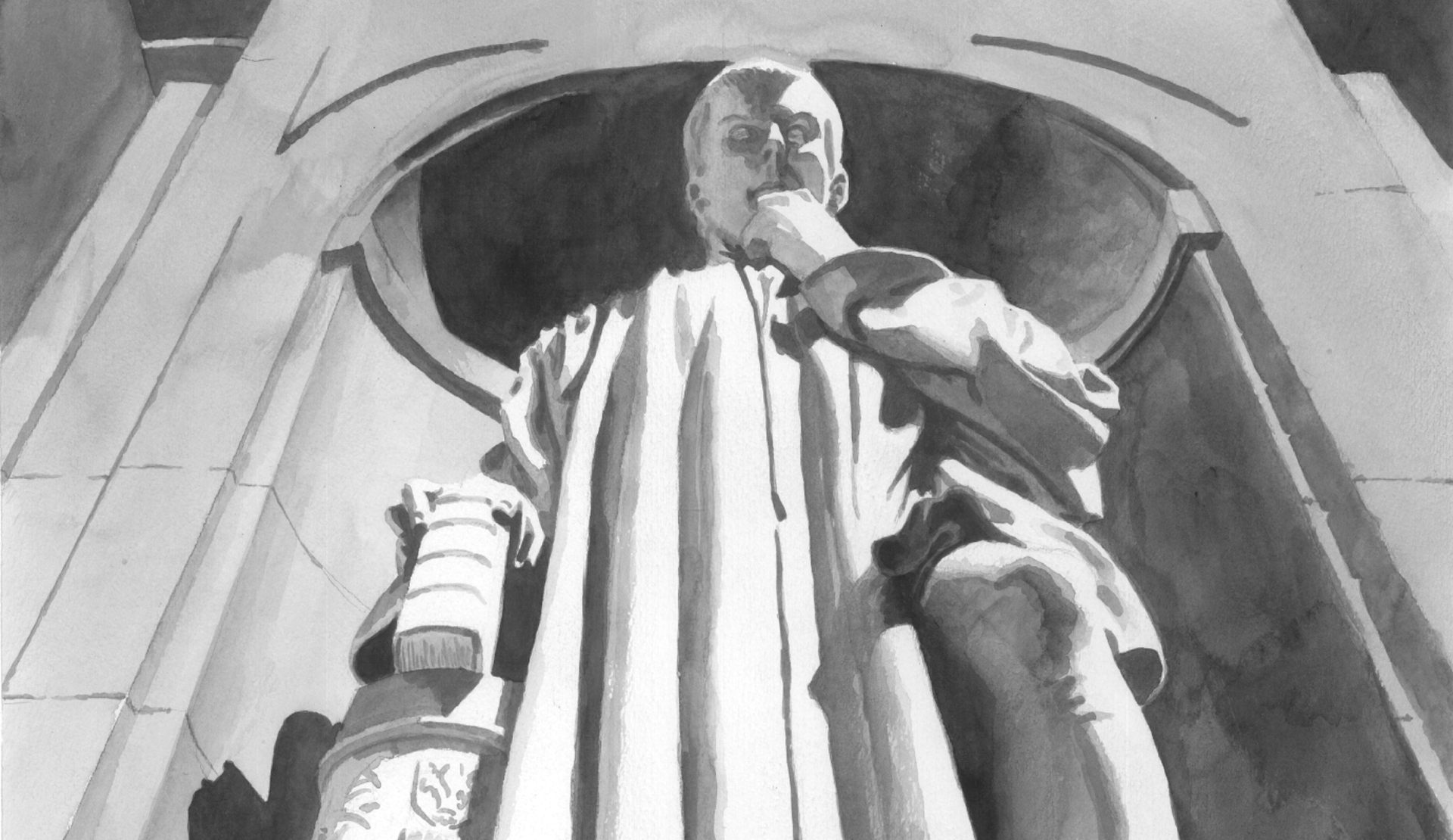
“I’m not interested in preserving the status quo; I want to overthrow it.”
I’ve seen this quote all over the internet attributed to Machiavelli. It pops up about five times a day in Twitter, shows up on all the major quote aggregators, and has made its way into not a few blog posts and articles. Theres only one problem. Machiavelli never wrote it.
When I first read the quote attributed to Machiavelli, it set off alarm bells. I couldn’t remember reading it for one thing, but Machiavelli left behind a large body of written work: his political treatises, The Art of War, his plays, letters and dispatches, so it’s possible I missed it. But a search of Machiavelli’s complete works reveals nothing. And what really made me pause was that it just didn’t sound like Machiavelli. When would he have written such a thing? Not when he was working in government, because at that point he was part of the status quo, and certainly not after his exile, because then he was desperate to get back in the good graces of the status quo. That and an inflammatory statement like that was the sort of thing that could get a man thrown in a cell, especially a man like Machiavelli who was viewed with suspicion in the first place. There was no First Amendment in Renaissance Florence.
So who said it?
Newt Gingrich, it turns out.
The origin of the quote, as near as I can tell, is this 1991 article from the LA Times.
Gingrich has dismissed the House as a “corrupt institution,” its Democratic leadership as “sick” and its last three Speakers as “a trio of muggers.” “A tin-horn Joe McCarthy,” harrumphs Democratic Rep. David R. Obey of Wisconsin. “He’ll stab you in the back in a New York second,” states Alexander.
Such jabs don’t faze Gingrich. “I’m not interested in preserving the status quo; I want to overthrow it,” he says. “Of course people are going to resent that.”
The quote shows up as Gingrich’s in a couple of books as well.
The phrasing in the LA Times article is exactly the same as the “Machiavelli” quote found around the Internet, including the semicolon, reinforcing the idea that the quote was lifted from isotretinoin the article. How or where it got attached to Machiavelli I have no idea.
But someone—many people, actually—was wrong on the Internet, and I had to do something about that.





 The quote seems to be from the German Romantic writer Johann Paul Friedrich Richter, better known by his nom de plume
The quote seems to be from the German Romantic writer Johann Paul Friedrich Richter, better known by his nom de plume 



















